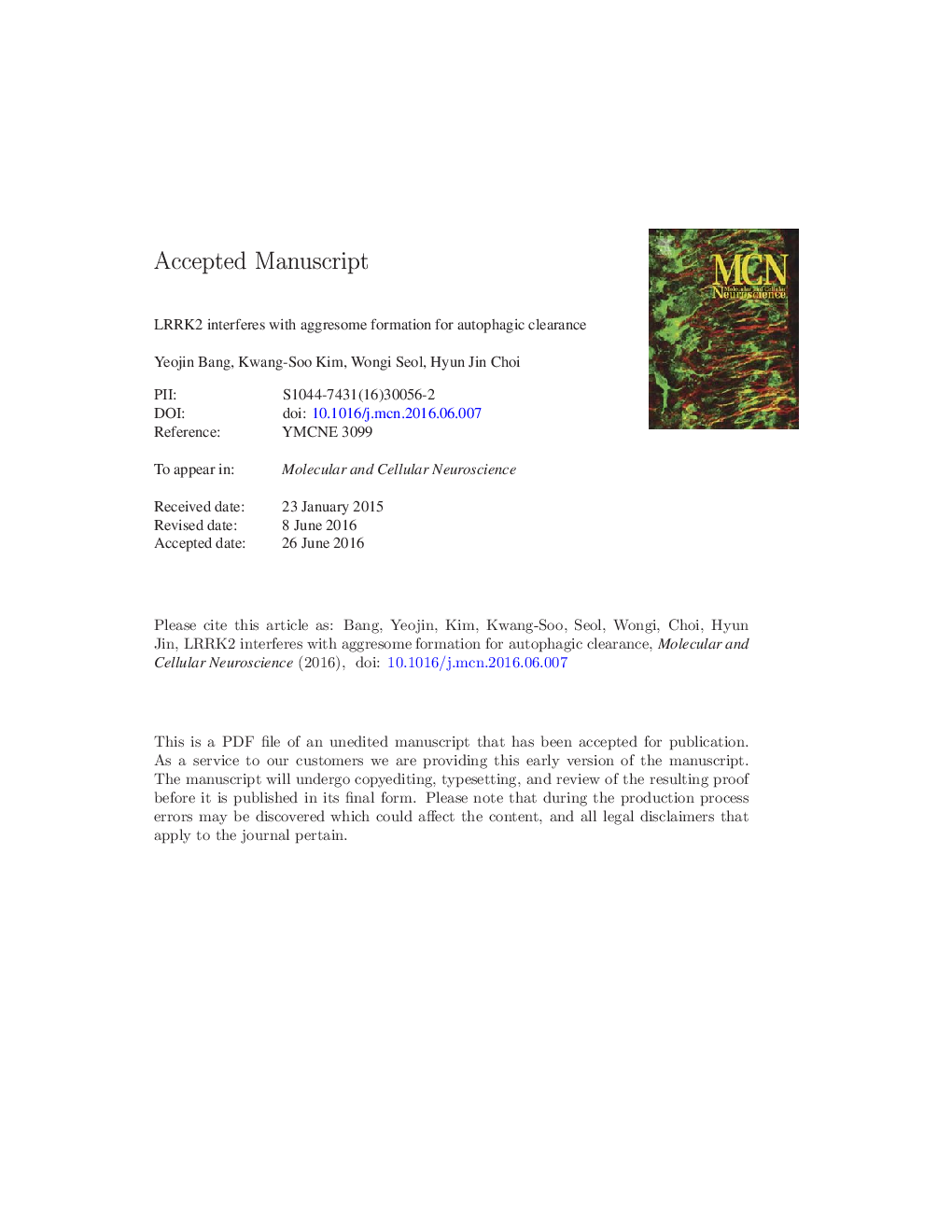| Article ID | Journal | Published Year | Pages | File Type |
|---|---|---|---|---|
| 8478462 | Molecular and Cellular Neuroscience | 2016 | 41 Pages |
Abstract
Autosomal-dominant mutations in the gene encoding leucine-rich repeat kinase 2 (LRRK2) account for the most common monogenic form of Parkinson's disease (PD). A link between autophagy dysregulation and LRRK2 has consistently been reported, but it remains poorly defined which step is targeted by LRRK2. Here, we sought to examine the effect of LRRK2 on the sequestration and degradation of aggregated protein complexes for autophagic clearance. Because two major intracellular protein degradation systems, the ubiquitin proteasome system and the autophagy, are functionally coupled, proteasome inhibition is suggested to activate autophagy. So, we induced protein quality control-associated autophagy using the proteasome inhibitor MG132 in differentiated SH-SY5Y cells and mice expressing G2019S mutant LRRK2 to uncover how the autophagy pathway is affected by LRRK2. We found that LRRK2 disrupted aggresome formation for autophagic clearance of accumulated protein aggregates. Specifically, we observed the following in differentiated SH-SY5Y cells with overexpressed wild-type and G2019S LRRK2: 1) large, clear, perinuclear aggresomes were not detected under MG132, instead, much smaller aggregates were broadly distributed in the cytosol; 2) enhanced accumulation of LC3-II and p62/ubiquitin-positive protein inclusions were noted; and 3) protein aggregates were not cleared even after a recovery period, which exacerbated the MG132-induced cytotoxicity. Notably, higher protein accumulation was detected in the brains of G2019S transgenic mice than in the brains of littermate control mice under proteasome inhibition. Our present findings provide insight into the precise mechanisms that underlie autophagy dysregulation in the brains of patients with PD with LRRK2 mutations.
Related Topics
Life Sciences
Biochemistry, Genetics and Molecular Biology
Cell Biology
Authors
Yeojin Bang, Kwang-Soo Kim, Wongi Seol, Hyun Jin Choi,
